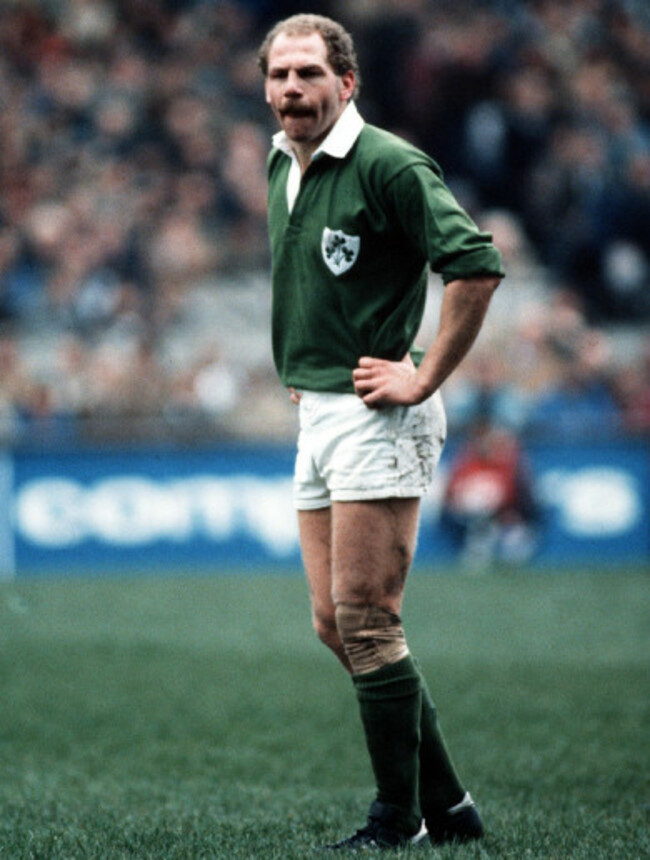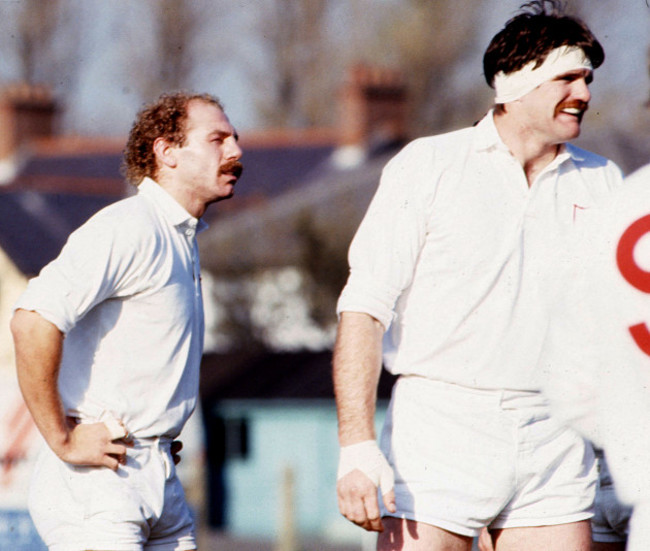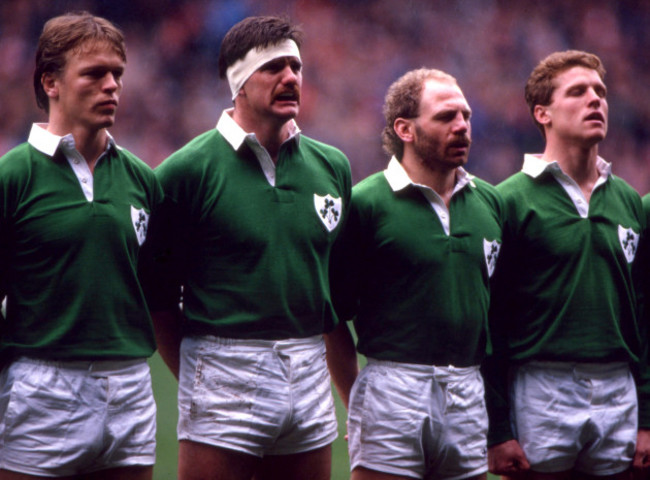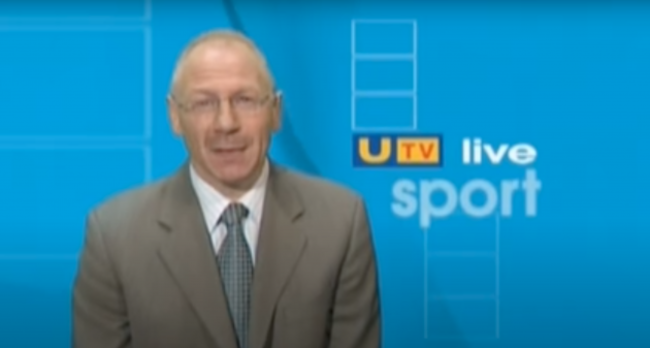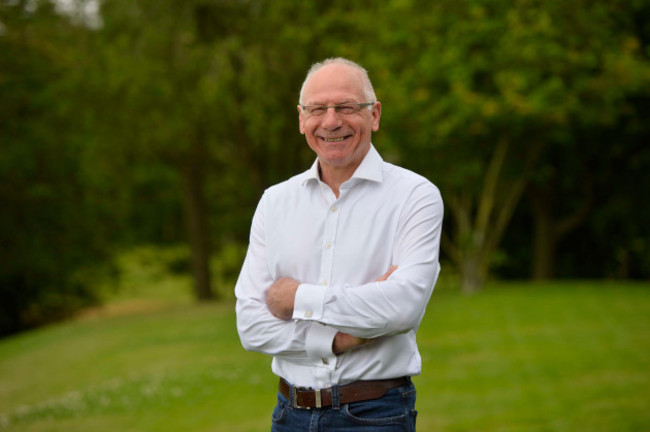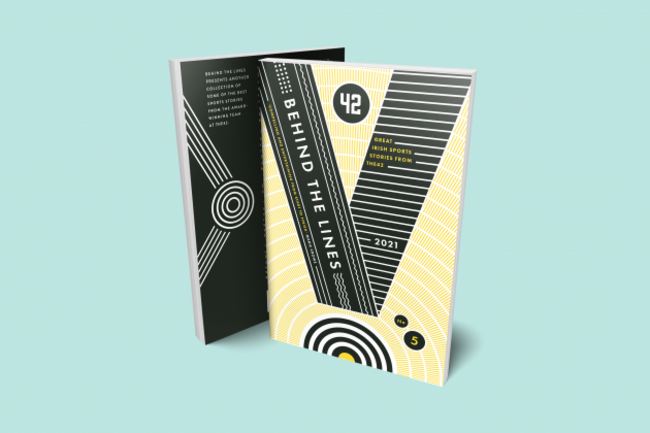NIGEL CARR RANKS going to the 1991 and 1995 World Cups as one of the best moments of his career.
Perhaps his only regret is that he never got to play in one.
In his second life, so to speak, as a journalist he was at the deciders at Twickenham and Loftus Versfeld, soaking in the atmosphere and sampling the best that rugby had to offer. But one of the best players to pull on a green jersey never got the opportunity to take to the field in a World Cup himself.
That, obviously, was out of his control. Had his career continued unhindered then it was a foregone conclusion that Carr would have starred at not just one but multiple World Cups for Ireland. However, in 1987, it would all be taken away from him.
His story is one that has been told many times before – while driving to Ireland camp in Dublin from Belfast with team-mates David Irwin and Philip Rainey, they were caught up in an IRA car bomb attack targeted at Lord Justice Sir Maurice Gibson, Northern Ireland’s second most senior judge, and his wife going in the other direction.
While the resulting explosion at Killean on the Irish border would sadly kill the Gibsons, the rugby players got off relatively lightly in comparison. Irwin and Rainey, while shaken, only sustained minor injuries and would go on to play for Ulster for several more years.
But Carr was not so lucky, a myriad of issues stemming from the incident ending his career that day. Instead of being a multiple-time Lion, he would make a solitary appearance for the touring side. Instead of making the Ireland jersey his own, he would end marooned on just 11 international caps. One of rugby’s greats never got to truly flourish on the biggest stage.
Now 62, he’s had no shortage of time to reflect on that day. At the time he admits he never quite grasped the severity of what had happened. Now, he obviously does, and the frustration of it is something he has learned to relinquish with each passing year.
“I don’t think I felt I was lucky to have my life back because initially I still thought I would get to the World Cup!” he laughs. “It was only over time that I discovered it was going to be a bit more serious.
“I think I gained an empathy with other people who had been in a similar situation. As a forensic scientist, I’ve seen burnt corpses and people with their legs blown off in car explosions.
Those sorts of things used to pass over me and, actually, I preferred it that way. I found myself empathising with people instead of bursting into tears.
“That’s the same even now. Maybe it’s a good thing, being able to understand people better. I found it easier being detached, cold. I found it easier to get on with things. That was the biggest thing that stuck with me.
“Forgiveness is a hard word. I don’t think I’ve quite forgiven them for what they stole from me. But there’s no bitterness, if there’s not full forgiveness for it. There were a lot of others who were much less fortunate than I have been.
“I’ve had my run at international rugby, really enjoyed it while it was there. If it wasn’t for (Fergus) Slattery, I could have been in there when I was 20 and had 50 caps, but I could have easily had none at all.”
Still, one can be happy with their lot and still be allowed to consider those rueful ‘what ifs’. What if he had played at that 1987 World Cup, would he have elevated his star status even higher? Or what about 1991, could he have been a difference-maker in that quarter-final against Australia at Lansdowne Road?
Those questions don’t keep Carr up at night, per se, but he is cognizant enough to admit they do cross his mind every so often, especially given that he would go on to get a taste of the World Cup as a reporter for UTV in both ’91 and ’95. That feeling of missing out is only the more acute when you see it first hand.
Having featured for the Lions against the Rest of the World in 1986, he was quickly becoming one of the premier talents in world rugby, but he would never truly get to test that in the high pressure environment he wanted to.
“Around 1986 or ’87, Rugby World, which was the magazine that we all got at the time, they had me as their No.1 flanker in the world. I’m not saying I was that, but I did feel like I was as good as anybody else,” he recalls.
“In the Lions match, I think I played rightly, but it was a disappointment in many respects and I wanted to put that right. I was working really hard, training really hard for it. My success was tied up in that of the team’s, and vice versa, and I know that it could have been a damp squib anyway no matter how much hard work I put in. I hoped I was going to make a mark on the world stage, so I do feel like it was stolen a bit from me.
On the other side, I just have to weigh that up with I have my whole life ahead of me. The biggest thing that came out of that bomb wasn’t the internal bleeding or anything like that, it was more the mental aspect that was different for me.
“The most difficult time for me was retiring ahead of my contemporaries, all the guys I played with. I even found going down to matches difficult. You go into the bar afterwards and they have all the stories of the games they were playing in and you just weren’t part of it.”
In many ways, his salvation came through the media side of things. After his retirement, Carr quickly caught on with UTV and began hosting Sport on Sunday, which saw him dispatched around the country – and, eventually, the world – to cover soccer, Gaelic games and, of course, rugby.
“It gave me an interest in a way that allowed me to contribute, participate in it while doing something useful. I enjoyed doing the rugby specifically, the World Cups and stuff like that, after starting off with the provinces and club rugby. I’d always a great interest in soccer, so I felt able to comment on games with a degree of authenticity,” he adds.
“It was great to get out to everything. I remember getting out to the Ulster final of the GAA and I just thought it was such a great way to break down the barriers, which sport does so well, especially in a time in Ulster which was a bit different. It was a great alternative to playing.”
Highlights from his media career were plentiful. He was sat alongside All Blacks captain Gary Whetton for the 1991 final between Australia and England and then, four years later, was only a couple of rows away from Nelson Mandela as the Springboks soared to an unforgettable triumph on home soil.
Things weren’t always so straightforward, though. Being in the UTV office when the Omagh bomb went off – the deadliest single incident of the Troubles, which killed 29 people and injured some 220 more – and reliving his own terrifying ordeal was tough, as was having to report on the death of good friend Joey Dunlop in 2000.
“I remember interviewing Joey and he was such a humble man despite his achievements. I worked in UTV the day that Joey’s death was announced. That was such a huge event. That was something on the scale of George Best’s funeral,” recalls Carr.
It’s the sportsperson that appeals to me. I’m not a huge fan of the Muhammad Ali types who say ‘I’m the greatest’, I like the guys that get on and do it quietly, and Joey Dunlop was that.”
He’s been out of the media game for a while now, and nowadays Carr has a new adventure ahead of him – full-time retirement. But, unsurprisingly for someone so active despite being in his early 60s, he’s not planning to put up the feet and take it easy.
While he’s been active in trying to establish a Northern Irish sporting museum, what Carr is most eager to be involved with is raising money to research ways to combat motor neurone disease after his brother-in-law Ian passed away from the illness a couple of years ago.
He’s already been active in that respect as in early 2020 he brought in £80,000 (€93,700) in fundraising for MND research after completing a 1,000-mile cycle around Ireland alongside former team-mate Keith Crossan among others, and he has watched on in admiration as former England rugby league star Kevin Sinfield brought in over £2million (€2.3m) by running 101 miles in 24 hours recently.
“Every penny goes to charity and hopefully it will help bring about a change in the future for people who suffer from this. It’s been brilliant the way things have come together and there’s a lot more hope now than there was in the past,” he explains.
I remember my brother-in-law going onto experimental treatments in the hope something would make a difference. Now I believe there is a hope for people given the amount of finance going into new drug discovery and development.”
And, with time on his side, he perhaps will do a little more reminiscing on those playing days with Ulster, with Ireland and with the Lions, as short as they all were. But, after all he’s been through and even in all the time that has elapsed in the meantime, you still won’t find Carr dwelling on what might have been.
Sure, he could have played at a World Cup or gone on a proper tour with the Lions if it wasn’t for that fateful day in 1987, but then who knows what would have happened after that? Those pesky ‘what ifs’ are better left to the imagination and nothing more.
“I’m happy with my lot,” he smiles contentedly in conclusion. “Delighted to have experienced it and been a part of Irish rugby even if it was only for a couple of years.”
